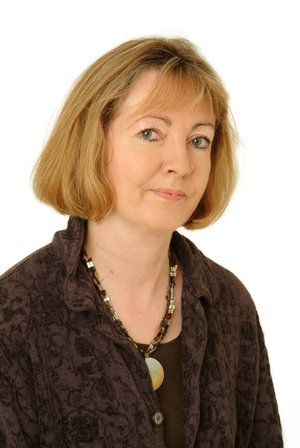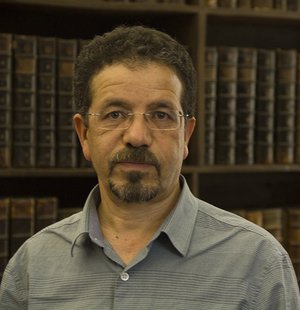Academic distinction recognised

Professor Catherine Whistler is Keeper of Western Art at the Ashmolean Museum, with curatorial responsibility for Italian art, French art before 1800 and Spanish art. She is a Fellow in Art History at St John’s.
Her research is largely focused on Italian art, especially the life of objects and the history of collecting and display, though she often works on wider-ranging projects with interdisciplinary aspects.
Her most recent research project, funded by the Leverhulme Trust, aimed to transform our understanding of Raphael, with eloquence in drawing as a research theme. Among other activities, including interdisciplinary workshops, this led to the ambitious and widely acclaimed exhibition Raphael: The Drawings at the Ashmolean and at the Albertina, Vienna, in 2017.
Watch two videos of Catherine talking about the recent Raphael exhibition here and here. In the first video she explains the scope and purpose of the exhibition. In the second she looks in detail at three drawings, from different stages in the artist's career.
Other
exhibitions Catherine has organised include:
- Opulence and Devotion: Brazilian Baroque Art
- The English Prize. The Capture of the Westmorland,
an Episode of the Grand Tour.
- Titian to Canaletto: Drawing in Venice. In bringing together drawings from two
great centres of collecting, Oxford and Florence, this exhibition took a new
look at Venetian art. Its showing at the Ashmolean showing also
featured Jenny Saville Drawing, a response to the gestural and
material qualities of Venetian drawing by a leading British contemporary
artist.
Her recent publications include Raphael: The Drawings (2017), Baroque & Later Paintings in the Ashmolean Museum (2016) and Venice and Drawing: Theory, Practice and Collecting 1500-1800 (2016).
 Professor Mohamed-Salah
Omri is Professor of Modern Arabic Language and
Literature.
Professor Mohamed-Salah
Omri is Professor of Modern Arabic Language and
Literature.
His key research interests include modern Arabic literature in relation to its past, to its socio-political contexts and to world literature. He has particular interest in issues of narrative form, cultural politics and comparative literature.
In addition to focused essays, which range from classical Arabic literature, the Arabic novel, Francophone literature of North African and cultural politics, he has published on the writer al-Mas’adi from a comparative perspective (Routledge, 2006), edited The Novelization of Islamic Literatures: the intersections of Western, Arabic, Persian, Urdu and Turkish Traditions (2007) and published three monographs in collaboration with historians Abdeljalil Temimi, Maria Fusaro and Colin Heywood and (2002 and 2003 and 2010), as well as ed. Comparative Criticism and Methods in Comparative Critical Studies (2015), Confluency (Tarafud) Between Trade Unionism, Culture and Revolution in Tunisia (2016) and ed. University and Society Within the Context of Arab Revolutions and New Humanism (2016).
Professor Omri is Chair of the Committee on comparative histories of Islamic literatures, a founding member of Oxford Comparative Criticism and Translation, and a founding member of the project Arab Revolutions and New Humanism, an interdisciplinary programme in collaboration with universities in Tunis and the US.
Recognition of Distinction Awards are assessed using three criteria:
§ an ongoing research record which is characterised by a significant influence on the field of study and is of a high order of excellence and of international standing, and the quality of which in terms of research distinction is at least equal to that expected of those appointed to full professorships at other leading international research universities.
§ a record of effective teaching for the University and for colleges, concomitant with the duties of the University post and the college fellowship, where one is held.
§ a record of involvement in University and/or college administration and demonstrable competence in such administration.